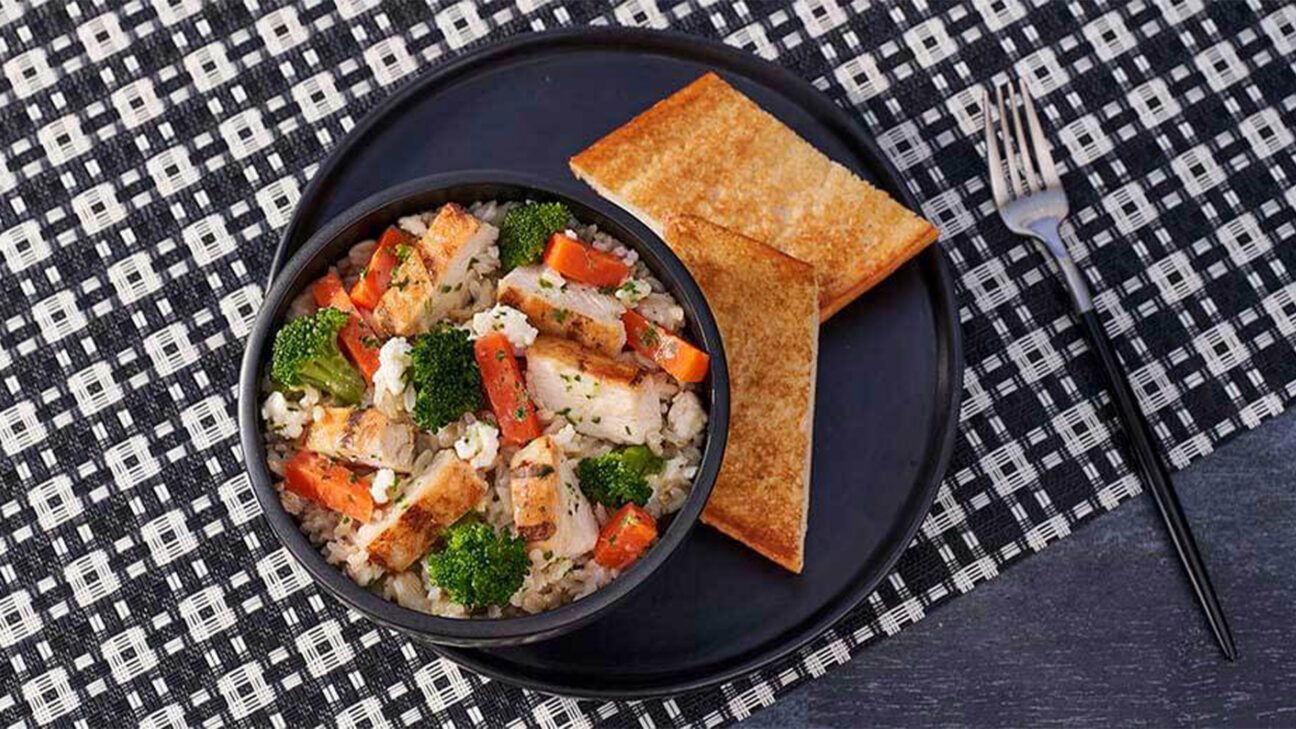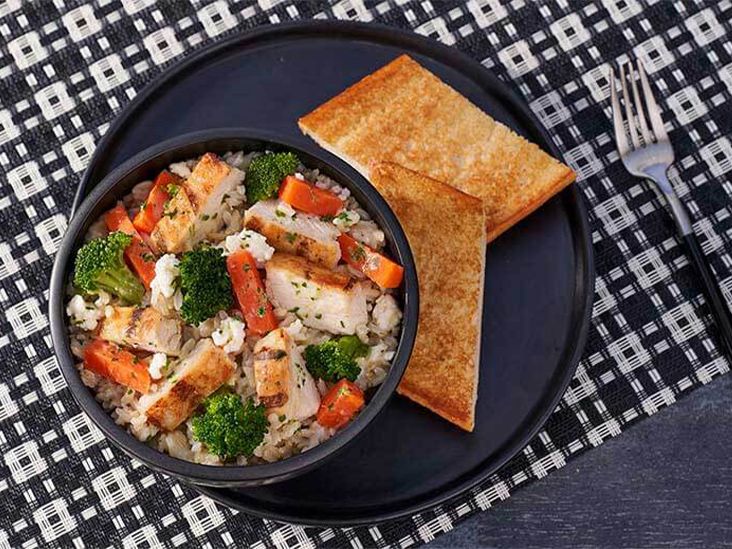 Share on PinterestAs GLP-1 drugs become more popular, Nestlé has launched a new line of frozen food items targeting people on these medications. Image Provided by NestléNestlé is launching a new frozen food brand, targeted towards people taking GLP-1 medications.Experts said that processed food cannot replace natural, whole foods. This food line can act as a supplement but should not be the only food source.Maintaining a healthy diet and lifestyle is important alongside consuming these products.
Share on PinterestAs GLP-1 drugs become more popular, Nestlé has launched a new line of frozen food items targeting people on these medications. Image Provided by NestléNestlé is launching a new frozen food brand, targeted towards people taking GLP-1 medications.Experts said that processed food cannot replace natural, whole foods. This food line can act as a supplement but should not be the only food source.Maintaining a healthy diet and lifestyle is important alongside consuming these products.
GLP-1 drugs, Ozempic and Wegovy have exploded in popularity with more and more people turning to these medications to help manage weight loss and diabetes.
To target this new group of consumers, Nestlé has created a new frozen-food brand, Vital Pursuit that will launch in the fall of 2024.
The food line will contain essential nutrients, with products such as sandwich melts, pizzas and frozen bowls with whole grains or pasta.
“I appreciate that Nestlé is providing a food line that is convenient and has – as they claim – ‘high protein and fiber,’ and various vitamins and minerals that people on weight loss medications may not be getting enough of through their diets,” said Stephanie Schiff, a registered dietician at Northwell Lenox Hill Hospital.
However, experts say that it is important that people on these medications do not see these items as their main source of food.
“There is no competition when you compare a diet of processed food products to a plant-focused diet which centers on food that is as close to its natural state as possible,” Schiff explained. “Research shows that a diet high in processed foods can put us at risk for various health conditions, depending on the level of processing.”
Nutritional deficiency is an issue with people who are on GLP-1 medications.
“People who are on GLP-1 drugs become less hungry,” Schiff stated. “They experience a feeling of fullness more quickly when they eat. Their appetites decrease and they eat less. They’re not likely to get a sufficient amount of vitamins, minerals, fiber or protein their bodies need if they’re eating less food. But a frozen food line is not necessarily the solution.”
When you eat less, you’re less likely to get the fiber, protein, vitamins, and minerals your body needs.
“You tend to eat less protein, which is important for growth and repair in the body,” said Schiff. “As you lose weight, you lose muscle mass, and having enough protein is key in maintaining that muscle.”
Also, people on these drugs tend to eat fewer vegetables and fruits, whole grains, beans, seeds, and nuts.
“These plant sources provide antioxidants, vitamins, minerals, and fiber,” Schiff explained. “Fiber can help stabilize blood sugar and lower cholesterol. It helps keep your digestive tract healthy. It feeds the good bacteria in your gut to reduce inflammation in your body. It can improve your mental health by being part of the synthesis of our feel-good neurotransmitters such as dopamine and serotonin.”
Jamie Leskowitz, MS, a registered dietician with Columbia’s Metabolic and Weight Control Center, noted: “Any time individuals consume less than they typically consume, it is possible they may be lacking key nutrients. Thus, it is imperative to ensure adequate nutrient consumption while consuming fewer calories. Focusing on a well-balanced and nutrient-dense eating plan is key.”
To optimize health while reducing total calorie intake, it is important to consume adequate macronutrients (protein, carbohydrates, and fats) and micronutrients (vitamins and minerals).
“Protein is especially important while losing weight to preserve lean muscle mass and increase satiety; carbohydrates are a major energy source and provide fiber, which is helpful for heart health, blood sugar, and bowel regularity; and fat enhances absorption of fat-soluble vitamins and is needed for brain function,” Leskowitz stated.
While vitamins (A, C, D, E, K, and the B vitamins) and minerals (e.g. calcium, potassium, magnesium, iron, etc) are required in smaller amounts, they are essential for keeping our bodies healthy and functional, Leskowitz explained. You can review your diet with a healthcare professional to ensure you are meeting your needs, which vary depending on age, weight, medical history, and activity levels.
While these drugs can help kickstart your health and weight loss journey, it’s crucial to remain consistent with eating well-balanced meals, exercising regularly and other healthy lifestyle habits.
“While the Vital Pursuit line may provide some convenient foods with some health benefits, I would hope that people on these medications choose to make high-quality whole foods the main part of their diets and use products like Nestlé’s Vital Pursuit at times when getting a meal is difficult,” said Schiff. “These are processed products, which tend not to be as healthy as foods that are close to their natural state. Even though vitamins, minerals, and other nutrients are added to their food, their absorption within our bodies is often less efficient compared to that from whole foods.”
Schiff continued: “I think that there is a time and place for products like Nestlé’s Vital Pursuit frozen food line. But whether in conjunction with our new GLP-1 medications, or any weight loss medications, I think a healthy, sustainable, minimally processed diet is one we should be aiming for. Processed meals can be considered as an occasional backup.”
More information is needed to determine how healthy this new food line actually is.
“At this point, I don’t believe Nestlé has released the details on nutrient levels or ingredients in their products, so I can’t speak to whether amounts of various nutrients are sufficient, or if the ingredients are healthful,” Schiff added.
Nestlé has created a new frozen food line, aimed at people taking GLP-1 medications.
According to experts, processed food should not replace natural, whole foods.
Maintaining a healthy diet and lifestyle is important regardless of what GLP-1 drugs or products, like Nestlé’s food line, you’re consuming.

